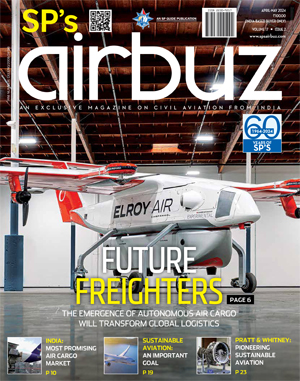Deutsche Aircraft, Energi i Nord, BLU and Bodø Municipality held a conference on the commercial development of e-fuel in Bodø with key stakeholders from the energy and aviation industries

While Sustainable Aviation Fuels (SAF) play a crucial role in achieving climate-neutral aviation, investments in e-fuel production in the European Economic Area (EEA) are still lacking in ambition. In response to this, German aircraft OEM Deutsche Aircraft, Energi i Nord (North Energy Cluster), BLU (Bodø Lufthavnutvikling) and Bodø Municipality hosted a two-day conference to discuss scaling up e-fuel production capacity with key stakeholders from the energy and aviation industries on April 24 and 25.
The ReFuelEU Aviation regulation mandates increasing shares of SAF in the European fuel mix to reach a requirement of 70 per cent in 2050 and a 35 per cent sub-mandate for e-kerosene.
Transport & Environment has been tracking the development of the e-kerosene market in Europe. By its latest count, the NGO identified a total of 50 e-kerosene projects in the EEA, including 30 large-scale industrial projects and 20 smaller pilot projects.
Given that the required e-fuel production capacity is not on track to meet the blending mandates outlined in the RefuelEU regulation, the objective of this conference was to discuss the commercial hurdles that need to be overcome to scale SAF and e-fuel production capacity. The participants of the events were key stakeholders from the public sector, airports, SAF producers, financiers and airlines.
"While momentum seems to be building in the European e-kerosene market, it is important to note that none of the major projects have reached final investment decisions (FID) yet, and many projects are still running feasibility studies," observed Marte van der Graaf, Aviation Policy Officer at Transport & Environment.
Jan-Hendrik Petersen, Managing Director at 360 Asset Finance, added, "A simple, back-of-the-envelope calculation shows that if we apply the 70 per cent SAF ReFuelEU blending mandate to global jet fuel demand in 2050, aviation will need approximately 350 billion litres of SAF. This translates to roughly 2,800 production facilities with an average capacity of 100,000t/a. Starting today, we would have to build about 110 plants every year at an average cost of roughly USD $1 billion per facility."
"Air transport is central to national and international connectivity and the transition to more environmentally friendly aviation, including increased use of SAF, is not only desirable, but necessary to contribute to national and international climate goals," remarked Bent-Joacim Bentzen, Norwegian Deputy Minister for Transportation. "To facilitate this transition, the Norwegian Ministry of transport, together with Avinor, the Civil Aviation Authority, the trade union (LO) and the association for companies (NHO), have established a collaborative forum. Furthermore, in the recently published National Transport Plan 2025-2036, 1 billion NOK has been prioritised to accelerate the transition to a greener aviation sector. The blending mandate for SAF, where Norway has taken an early lead, will also be important. We are clearly at the beginning of a challenging journey. Still, we believe Northern Norway can play a central role by maturing e-fuel production to enable the decarbonisation of aviation."
The discussion focused on the need for more access to SAF financing. Risk-return profiles are still not attractive for investors and are perceived as too complex with insufficient risk mitigation tools. This holds especially true for e-kerosene, which offers scalability and the significant reduction of greenhouse gas emissions but poses higher risks for investors due to its lower maturity in comparison to other SAF pathways.
"It is important to realise that we are not on track with scaling Sustainable Aviation Fuels to secure aviation's societal license to operate," stated Ulrike Ziegler, President of the Board, Impact on Sustainable Aviation. "During the conference, we discussed the key obstacles, from the complexity and instability of the policy landscape and the need for tangible, long-term offtake agreements, to the importance of adequate risk mitigation and financing instruments to support first-of-its-kind e-fuel projects. In addition to ensuring that relevant stakeholders from the broader supply chain, including policymakers, collaborate to develop risk mitigation measures, the industry must also step up the education of the passengers to get their buy-in."
During the conference, several SAF producers also showcased promising e-fuel projects, such as Norsk e-Fuel, which is building a 50 million litre production plant in Mosjøen that will commence full-scale production after 2026.
"A key success factor for e-fuel projects is the early involvement of value-chain partners and local stakeholders," observed Ida Larsen, Head of R&D, Norsk e-Fuel. "The offtake agreement with Norwegian Air Shuttle and their investment in our company is one example and shows how we are moving the project forward."
"Globally, SAF will be short in supply for a long time, but regions such as Northern Norway have the potential to see significantly higher blend ratios, making the region an ideal place for pioneering near-climate-neutral regional aviation," remarked Regina Pouzolz, Director of Sustainability at Deutsche Aircraft. "Join us at the ILA Future Lab at ILA Berlin on 5 June 2024 if you want to learn how we are reshaping regional aviation with our exciting and fruitful partnership."





